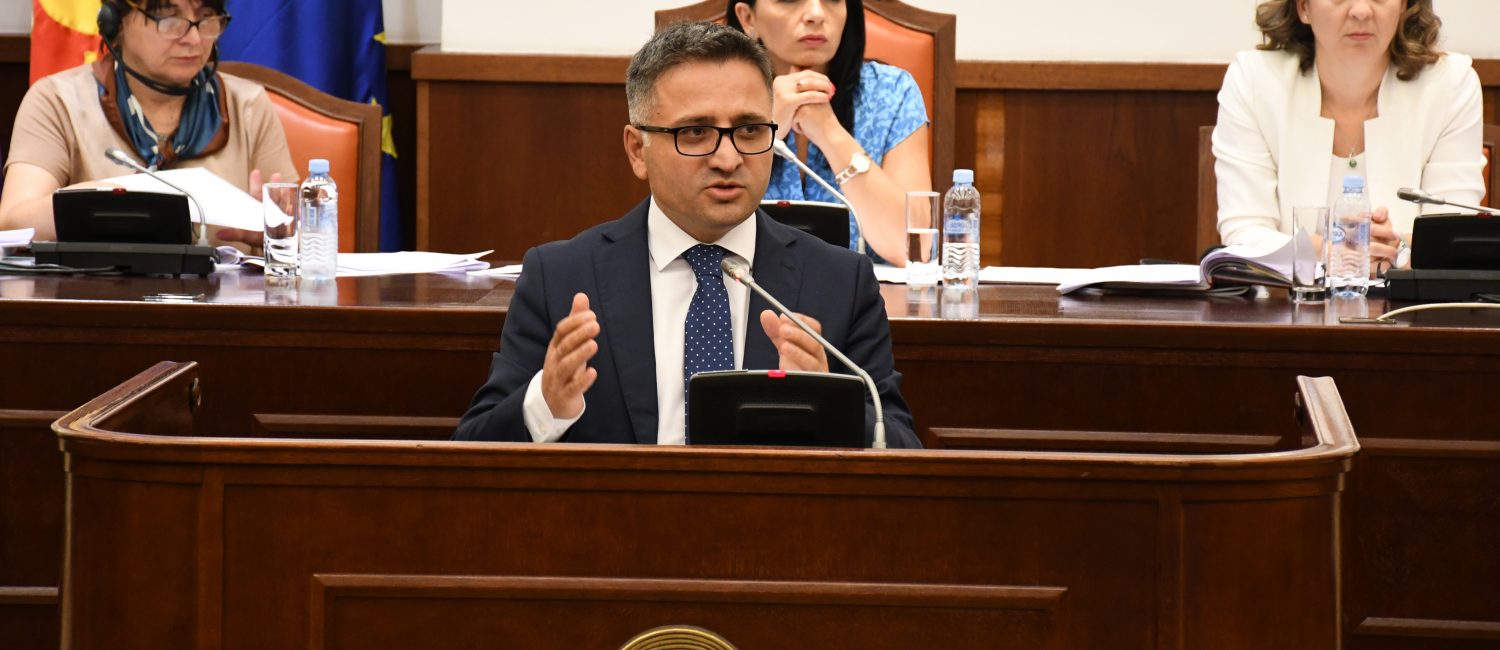24th July 2023, Skopje – Financing the anti-crisis measures targeted at managing the crisis is the key characteristic of the solidarity tax, which is not a general one and its purpose is to finance the anti-crisis measures envisaged in the Budget. All stakeholders took part in the public debates about the respective tax, Minister of Finance, Fatmir Besimi, said at the European Affairs Commission’s session held in the Parliament, with this Law being put on the agenda.
“What makes this tax specific, which is conceived as extraordinary and one-off tax, is that it is not a neutral, general tax as the other systemic taxes the revenues collected on the basis of which are budget revenues, but rather its purpose is precisely defined and, therefore, the funds collected are intended for the P1 Program – measures to deal with COVID-19 crisis and other anti-crisis measures related to the crisis. This is also defined under the Budget Execution Law, explicitly prescribing that the funds collected will be used to support the anti-crisis measures, thus more transparently showing how the funds are spend”, Minister Besimi said.
He went on by saying that the solidarity aspect of this tax is also one of the principles envisaged in the Constitution, in particular Article 8 and Article 33, defining the principle of solidarity, as well as that the citizens and the legal entities are obliged to pay the public duties prescribed by law.
The Minister emphasized that it is the Law’s solidarity feature that secured the support of all stakeholders and the business community engaged in the preparatory process. As he underlined, several public debates took place last December, with the business community also participating with its proposals, which were accepted and are an integral part of the draft Law, now in parliamentary procedure.
In addition to the broad consultations, this legal solution is also designed in line with the Council Regulation (EU) 2022/1854, applied by other EU Member States as well, such as Croatia and Hungary, covering other sectors along with the energy sector.
“This provides for a basis to demonstrate solidarity in supporting the Budget, considering that in the past three years since the COVID-19 crisis onwards, almost EUR 2 billion budget funds was spent for managing the crisis. With the EU awarding EUR 80 million grant funds and EUR 100 million loan as budget support under favourable terms and conditions (interest rate) this year, it is important that we, as a country, respond to the crisis effects as well. Therefor, I believe this tax, which is conceived as extraordinary and one-off tax, pertains exactly to tacking the crisis and providing support in times of high interest rates on borrowing on the financial markets, thereby not having the future generations bear the burden of repaying loans and interest, also underpinning both the business sector through measures for both small- and medium-sized enterprises, as well as the citizens, who have been extended support on several basis in terms of the energy crisis. For instance, by applying VAT preferential rates for electricity for the households alone, EUR 70 million has been extended”, Minister of Finance, Fatmir Besimi, pointed out.
















